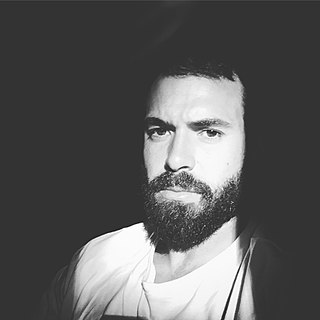A Quote by Jennifer Egan
My last novel, 'The Keep,' was very explicitly technological, about the quality of living in a state constantly surrounded by disembodied presences, and I was thinking very much about the online experience.
Quote Topics
Related Quotes
The music is just very specifically [designed] to get you energized. That's the great thing about those situations: I have no choice. It completely takes over your body and pushes you, like it was designed to do. I'm constantly surrounded by music, energy, and experiences that put me in that state of cheer.
If someone does learn about the world from reading a novel of mine, that makes me very happy. It's probably not what brings me into the novel in the first place - I usually am pulled in by some big question about the world and human nature that I'm not going to resolve in the course of the novel. But I'm very devoted to getting my facts straight.
The more readings a novel has, even contradictory, the better. In journalism, you talk about what you know; you have provided yourself with records, you have gathered information, you have performed interviews. In a novel, you talk about what you don't know, because the novel comes from the unconscious. They are very different relationships with words and with the world. In journalism, you talk about trees; in the novel, you try to talk about the forest.
The reality that we were growing up in was very young and vibrant, and nobody was capturing that part of India. I started to backpack after getting out of college. I hiked and did a lot of things nobody was capturing in art at all in India, so I wrote my first novel. It was a very, trippy, experience-filled novel, and it ended up doing very well in India because nobody was writing about that at that point.






































